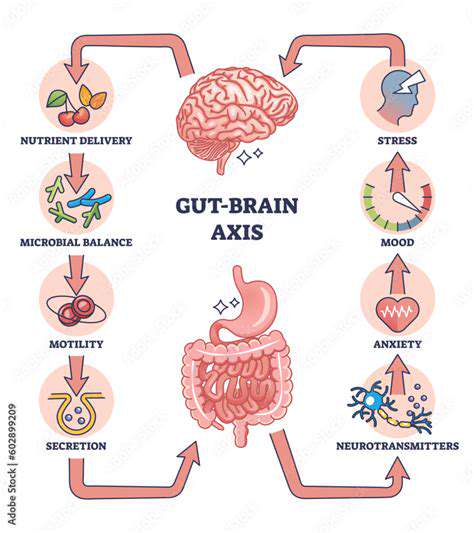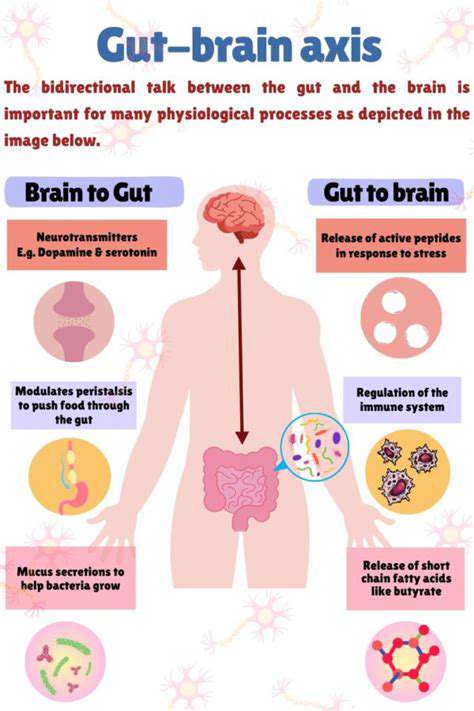
The Foundation of Stress
Modern life bombards us with stress from all directions - it's woven into the fabric of our daily existence. This constant pressure arises from both our internal world and external circumstances. Whether it's the relentless ping of work emails or the emotional toll of major life transitions, these stressors manifest in countless ways. Our bodies react to these pressures with intricate hormonal dances that can either protect or harm us, depending on their duration and intensity.
This biological alarm system, evolution's gift for survival, serves us well in short bursts. But when the emergency signals never turn off, the consequences become severe. Our immune defenses start crumbling like ancient ruins, leaving us vulnerable to a host of physical and psychological ailments. The body wasn't designed for perpetual red alerts.
The Impact on Mental Well-being
Stress doesn't just tighten muscles - it tangles thoughts and emotions into knots. Persistent stress can plant the seeds for anxiety and depression, growing into thickets of worry, scattered focus, and sleepless nights. These symptoms then feed back into the stress cycle, creating a self-perpetuating storm of mental distress.
The ripple effects extend far beyond the individual. When stress infiltrates relationships, it acts like emotional static - distorting communication and creating emotional distance between people. Breaking this cycle requires both understanding stress's origins and developing personalized toolkits for managing it effectively.
Strategies for Managing Stress
Combating stress requires a multi-pronged approach. Mindfulness practices offer powerful anchors in turbulent times - techniques like focused breathing and meditation help create space between stimuli and reactions. These practices act like mental pause buttons, interrupting automatic stress responses before they escalate.
Self-care isn't indulgence - it's maintenance. Regular doses of activities that spark joy - whether forest walks, creative projects, or simple pleasures - serve as essential counterweights to life's pressures. For those drowning in stress, professional support can provide life rafts - therapists offer customized strategies for navigating turbulent emotional waters.
The Gut-Brain Connection and Migraine Triggers

The Impact of Gut Health on Migraine Frequency
Emerging science reveals fascinating links between our intestinal ecosystems and migraine patterns. This gut-brain dialogue suggests that microbial imbalances might fan the flames of neuroinflammation. When gut bacteria fall out of harmony, they can send inflammatory signals along the gut-brain axis, potentially lighting the fuse for migraine attacks.
Dietary Factors and Their Role in Migraine
Food choices act as powerful modulators of both gut health and migraine susceptibility. The standard Western diet, overloaded with processed foods, functions like wrecking ball for gut microbiome diversity. In contrast, plant-rich diets appear to cultivate microbial gardens that may help shield against migraine storms.
Individual food sensitivities add another layer of complexity. Common culprits like aged cheeses and cured meats contain compounds that can trigger neurological fireworks in susceptible individuals. Identifying and avoiding personal dietary triggers requires detective work but can yield significant relief.
The Role of Inflammation in the Gut-Brain Axis
Inflammation serves as the common language between gut and brain. When gut inflammation becomes chronic, it can scramble neural communication pathways. This inflammatory cross-talk may explain why migraine sufferers often experience digestive symptoms and vice versa. The gut-brain axis functions more like a two-way radio than a one-way megaphone.
The Influence of Stress on Gut-Brain Interactions
Stress doesn't just tense shoulders - it tangles the delicate wiring between digestive and nervous systems. The stress response can evict beneficial gut bacteria while giving harmful strains prime real estate. Mind-body practices that calm the nervous system may help restore microbial balance and dial down migraine frequency.
Probiotics and Their Potential Benefits
The probiotic revolution offers promising avenues for migraine management. Specific bacterial strains appear capable of modulating inflammatory pathways and strengthening gut barrier function. While research continues to identify optimal strains and dosages, the potential for microbiome-targeted migraine therapies continues to grow.
The Importance of Seeking Professional Guidance
Navigating the gut-brain-migraine maze requires expert maps. Specialists can help identify individual triggers and craft personalized treatment plans that address both neurological and gastrointestinal aspects. This integrated approach often yields better results than targeting symptoms in isolation.